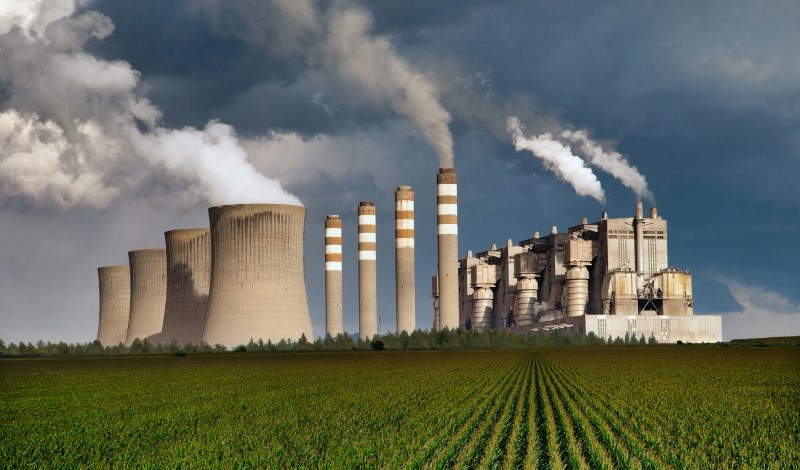
Policymakers should more carefully consider the challenges to implementing a carbon tax.
Most mainstream economists, both conservative and liberal, support a carbon tax. As economist Alan Blinder recently remarked, “it’s only a very slight exaggeration to say that all economists favor a carbon tax to mitigate climate change.”
Yet economists have exaggerated the benefits of a carbon tax when accounting for real-world politics, bureaucratic inertia, and the “pretense of knowledge.”
Economists and other advocates point out that a carbon tax would create correct price signals to consumers and producers by connecting the social cost of production with the damage from carbon emissions, thereby stimulating research and development on clean technologies and avoiding inherently inefficient policy actions, such as command-and-control regulations and subsidies.
After all, a carbon tax relies on the pricing mechanism to account for the “carbon” costs that inflict society when businesses produce goods and services. What could be wrong with that, especially for an economist like me who strongly believes in trusting markets to allocate society’s scarce resources?
What Nobel Prize winner Ronald Coase said about blackboard economics is germane for a carbon tax. Economists and other analysts need to account for the world’s realities rather than merely resorting to a theory with simplified and tenuous assumptions.
In line with Coase’s comment about blackboard economics, even if one can theoretically show that a carbon tax is the best way to combat climate change, the tax may fail to achieve meaningful results in practice.
One reason lies in the speculative nature of the external costs from carbon emissions. For example, attempts to measure the social cost of carbon depend on predictions of economic and climatic conditions decades out in the future. A theoretically second-best or third-best policy may actually perform better in the real world.
Let me elaborate. For a carbon tax, policymakers should consider the politics, the highly perplexing problem of measuring the damage from carbon emissions, and other real-world challenges, such as administrative and bureaucratic behavior.
Analysts refer to the damage from carbon emissions as the social cost of carbon (SCC), which is the theoretically right metric for setting a carbon tax. Another way to say this is that the SCC represents the benefits from reducing carbon emissions by one ton.
Knowledge of the SCC, however, is so deficient as to make estimates highly suspect. The SCC depends on parameters that are subjective: interest groups, politicians, and bureaucrats can argue (and they have) for a SCC that best advances their agenda. The SCC is especially dependent on both the discount rate—since alleged major damages would begin only after several decades have passed—and the region-specific temperature change and welfare losses from a ton of carbon emissions.
Much of the analysis done to measure the SCC derives from Integrated Assessment Models (IAMs). MIT economist Robert Pindyck, who has conducted widely cited work on the economics and modeling of climate change, once commented:
What have these IAMs (and related models) told us? I will argue that the answer is very little.…The models are so deeply flawed as to be close to useless as tools for policy analysis. Worse yet, their use suggests a level of knowledge and precision that is simply illusory, and can be highly misleading….An IAM-based analysis suggests a level of knowledge and precision that is nonexistent, and allows the modeler to obtain almost any desired result because key inputs can be chosen arbitrarily.
Although the quality of IAMs has improved over time, their ability to accurately forecast the damage from carbon emissions still leaves much to be desired. There is just too much uncertainty over the inputs in the models to convey much confidence in their results.
A major source of uncertainty is the linkage between natural and economic outcomes. For example, if global temperatures increase by a certain level, what effect that would have on gross domestic product is extremely difficult to predict with reasonable accuracy. One can describe such predictions as highly speculative, devoid of any rational policy implications. Another significant uncertainty is the effect of carbon reductions on global temperatures. The results, or the SCC calculations, are highly sensitive to these relationships.
Even with a carbon tax, climate activists would likely still lobby for more welfare-reducing mandates and other regulations, and subsidies for clean technologies. After all, the legacy of U.S. environmental policies is heavy reliance on highly inefficient command-and-control mechanisms and subsidies for politically favored technologies.
It should come as no surprise that environmentalists are generally skeptical of “pollution” taxes. They prefer subsidies for clean-energy technologies and caps on emissions. They would never agree to a carbon tax unless it were extremely high, which would be politically objectionable. A carbon tax set at a politically feasible level would likely fail to achieve the 1.5 to 2 degree Celsius target that many activists advocate.
Climate activists’ preference for heavy-handed regulation requires policymakers faced with imperfect information, and often with a biased angle, to choose their favored technology for special treatment. One has to question the added benefit of a carbon tax to reduce carbon emissions if legislators continue to adopt inefficient measures such as subsidies and command-and-control actions (such as natural gas bans). Could we expect the government to rid of all mandates and subsidies even with a carbon tax in place? It is very doubtful and once again exemplifies advocates embellishing the benefits of a carbon tax by ignoring the real world.
Even if a consensus existed among experts on the social costs of carbon, the bureaucrats and politicians would likely choose a metric aligned with their own self-interest or with the interests of those who hold current power. Look no further than the contrast between the Trump Administration’s estimate of a SCC in the range of $3 to $5 per ton and the Biden Administration’s SCC of $51 per ton or the $190 per ton endorsed by the current U.S. Environmental Protection Agency.
How can government officials rely on such “guesstimates” when using SCC to develop policy? It seems obvious that more than good analysis goes into determining the level of SCC applied by whoever is in power. One cannot overlook the possibility that a politically driven carbon tax can result in a sizeable societal welfare loss.
Ronald Coase had something else to say about carbon taxes. His seminal article on social cost questions the Pigouvian solution of taxing an externality such as carbon emissions. He would likely have considered other approaches, such as adaptation and geoengineering. Such approaches can be more effective and efficient in reducing the damage from climate change. Accordingly, a carbon tax may not be the optimal solution to an “externality” problem, as claimed by many advocates of a carbon tax.
Public choice economics would also predict the improbability of an actual carbon tax achieving a blackboard outcome: the combination of distorted incentives to appease special interests and the self-interest of government officials, the possibility of more economic-rational measures than carbon reductions, such as adaptation, and the lack of knowledge about how a complex world works, would obviate a blackboard outcome. As in other matters, bureaucrats and politicians would identify more with their self-interests and willingly pursue it even when the public good suffers.
In the end, what matters is: Would a carbon tax improve the state of affairs, and be superior to other measures to combat climate change, given the problems that I have raised? The answer is not obvious, even for a mainstream, pro-market economist like me.



